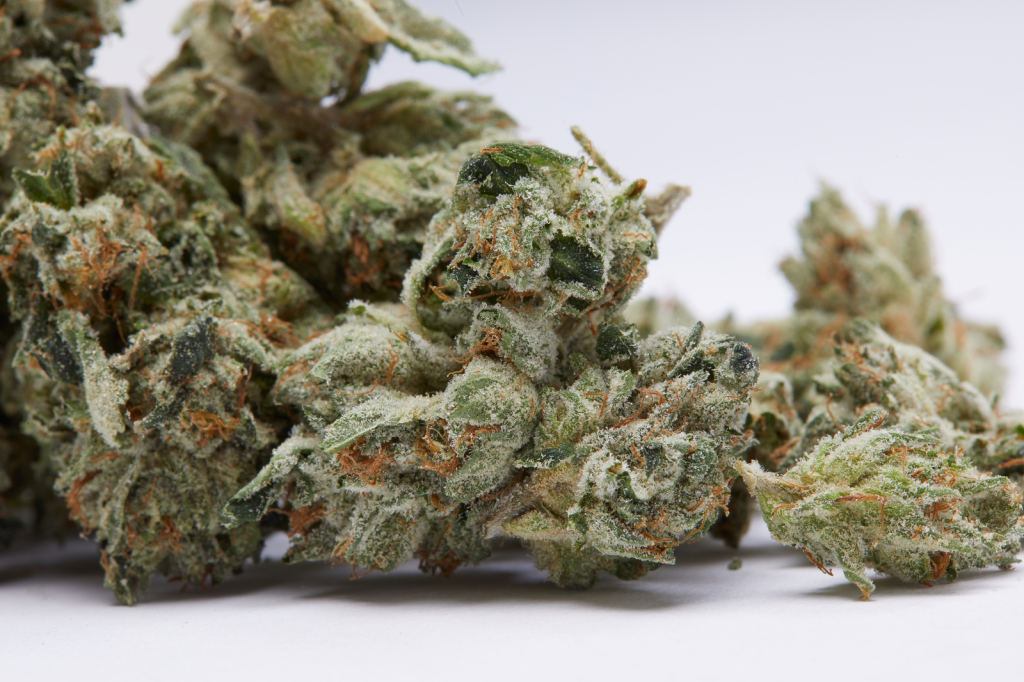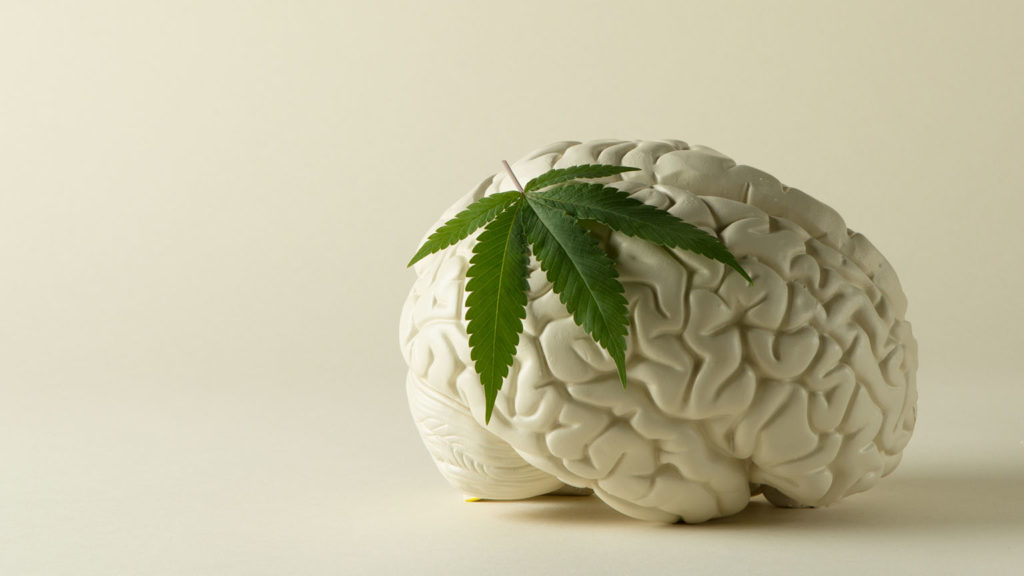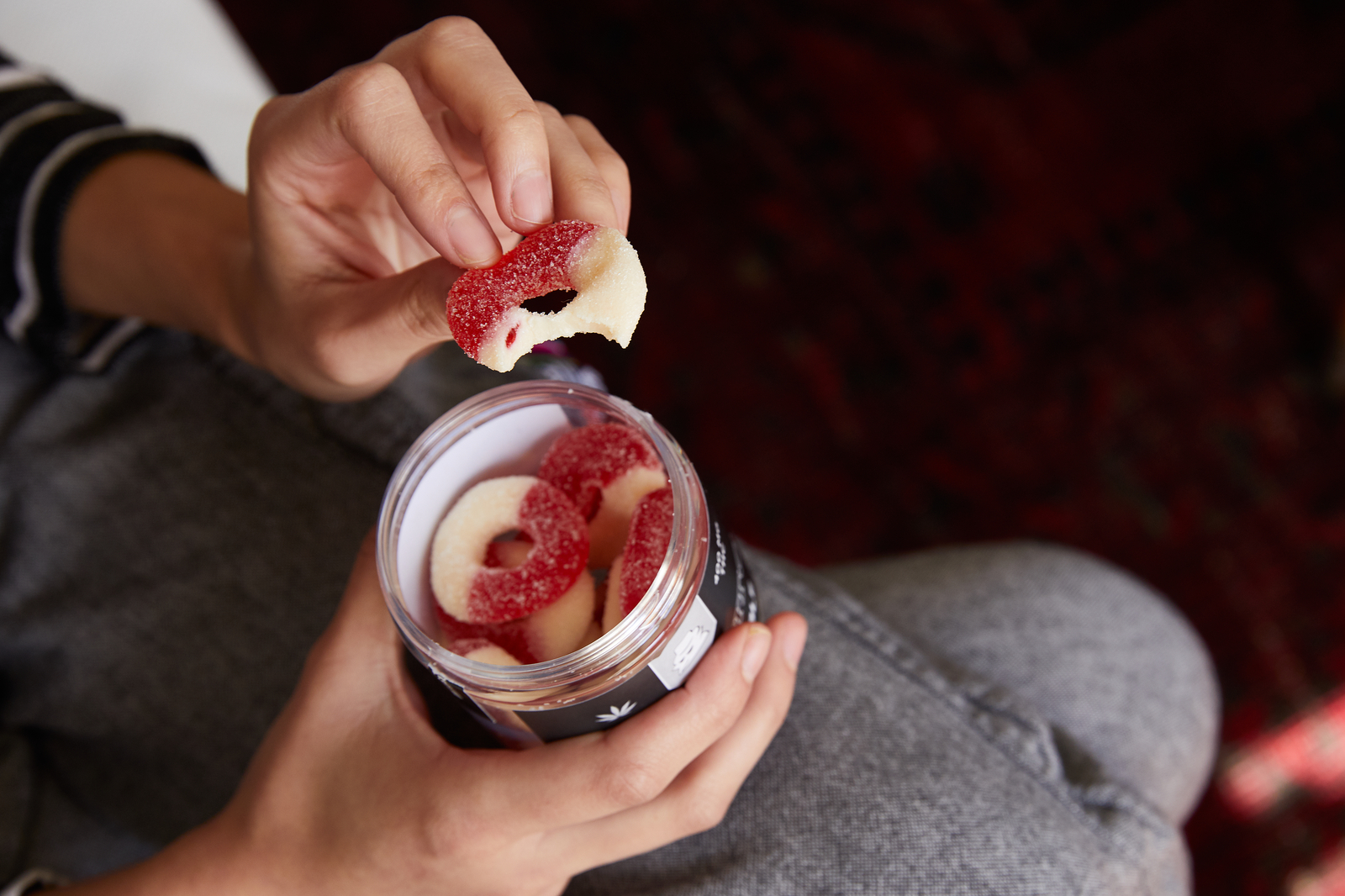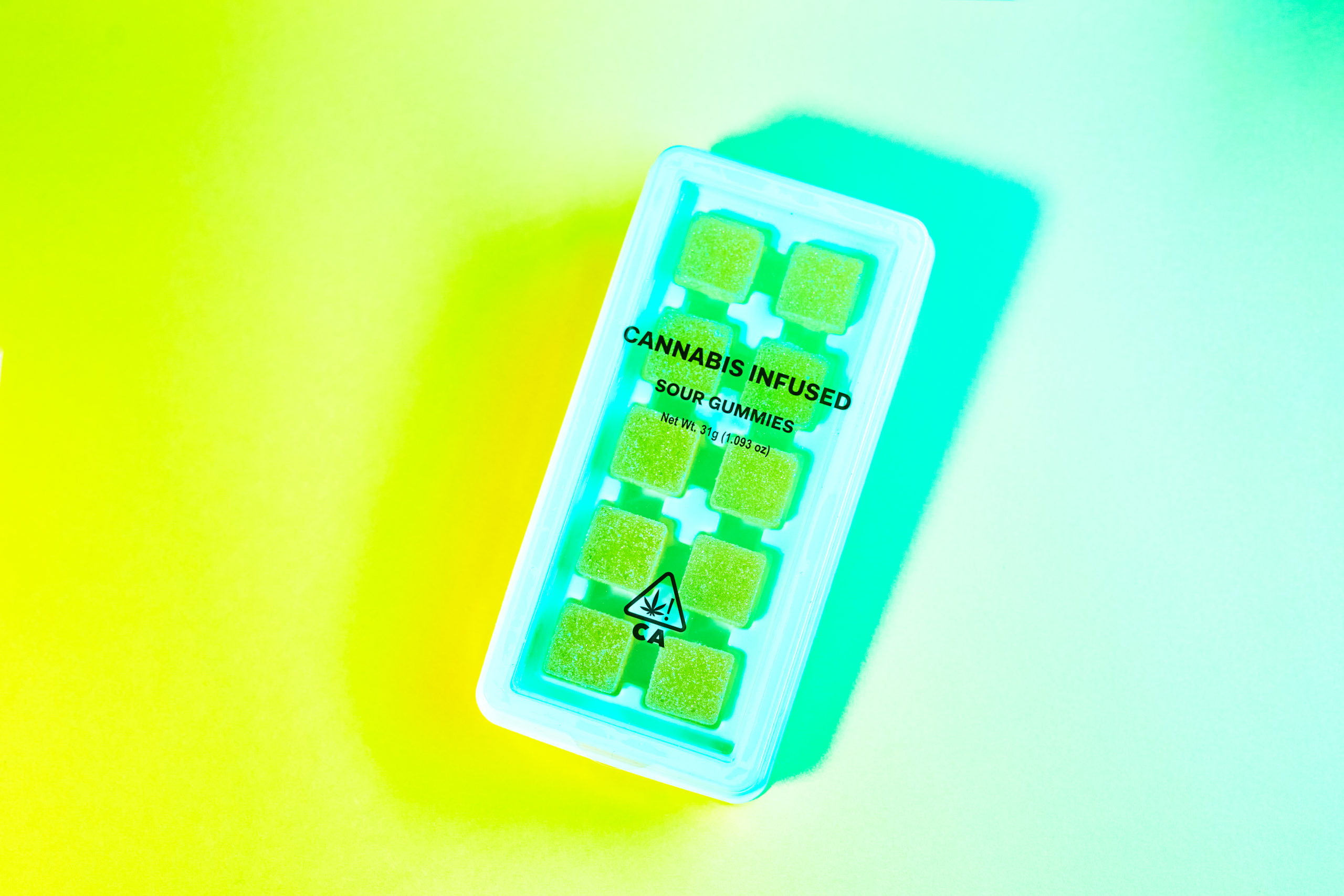Even the most seasoned cannabis enthusiast has a story about when they overdid it. Maybe they ate the whole brownie when they should've had half. And though cannabis has many potential therapeutic uses, anyone can take too much and land in a tailspin, especially those new to cannabis or have a low tolerance.
The good news is that there are no known reports of anyone experiencing a fatal cannabis overdose. Though you may feel like you're going to die — like Maureen Dowd or that one cop who called the cops on himself — you will most certainly survive to see another day.
If you're too high from flower, edibles, or concentrates or want to prevent getting too high before partaking, these tips may help mellow you out and ease the discomfort.
How to know if you're too high
It's very subjective, but if you suspect you're too high, known as “greening out,” you're probably feeling one or more of the following symptoms:
- Paranoia
- Rapid heartbeat
- Nausea
- Confusion
- Extreme dry mouth or thirst
- Hallucinations
Depending on how much you've consumed and the type of cannabis product, a weed high can last anywhere from 1 to 12 hours. It's a wide range, but everyone responds to the effects of cannabis differently.
How to sober up from weed: 11 recommended methods
Time is the best antidote to a too-intense weed high, but in the meantime, there are more ways to make yourself comfortable while waiting it out.
Monitor potency and dose
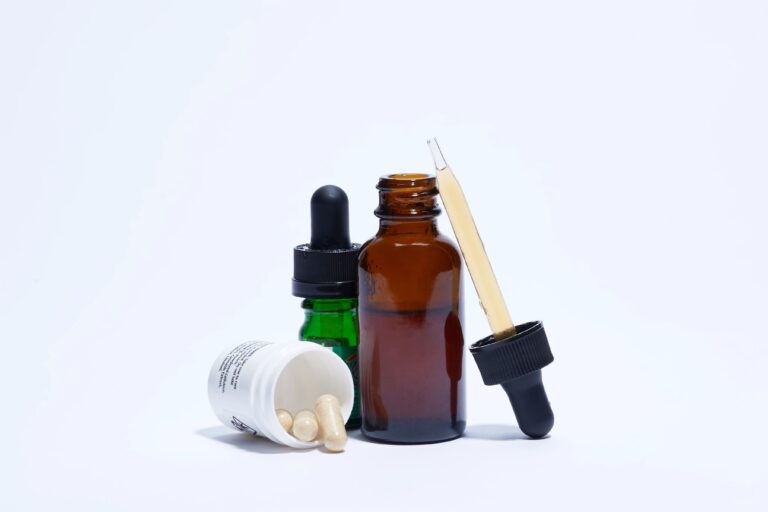 Photo by: Gina Coleman/Weedmaps
Photo by: Gina Coleman/WeedmapsImage lightbox

Stop partaking and note how much you've consumed; this will help you avoid overdoing it in the future. Know that the uncomfortable feelings will pass no matter the amount of THC in your system.
Find a distraction
Listen to your favorite podcast, put on a light and familiar TV show, open a coloring book, or make a pot of tea — something easy that will help distract you from a sudden bout of cannabis-induced anxiety. By shifting your attention from how high you are to an enjoyable activity, you can ground yourself in the present and let time pass more comfortably.
Practice relaxation techniques and breathing exercises
 Photo by: Gina Coleman/Weedmaps
Photo by: Gina Coleman/WeedmapsImage lightbox

Sometimes, all you need to evaporate a weed high is a meditative approach in a comfortable and, if possible, peaceful setting. If you feel like your heart is racing or an anxiety attack might be coming on, lie down and take several slow, deep breaths.
Listening to calming music and reminding yourself that everything will be fine can go a long way.
Drink plenty of water
Drinking water is good for your health and your overly-stoned self since staying hydrated can have a relaxing effect. Water helps douse the cotton mouth and forces you to focus on the simple process of sipping and swallowing — a nifty trick if your thoughts are spinning.
Add lemon to your drink for a possible calming effect thanks to its terpenes, the aromatic oils that give each cannabis plant its distinct smell, flavor, and effects. The citrusy terpene limonene, found in the rinds of citrus fruits and certain strains of cannabis, has been reported to have anti-anxiety effects. If you have a lemon on hand, squeeze it into your water or tea.
Eat
 Photo by: Gina Coleman/Weedmaps
Photo by: Gina Coleman/WeedmapsImage lightbox

A light snack can help you feel grounded and stabilize your blood sugar. Eating certain snacks might be particularly helpful in easing the anxiety of being too high:
- Pine nuts: Besides being a tasty and healthy snack, pine nuts are rich in pinene, a terpene that may reduce feelings of anxiousness.
- Fresh fruit: Water-rich fruits like melon, oranges, or grapes are hydrating and can help combat dry mouth.
- Peppercorn: Thanks to the terpene beta-caryophyllene, black peppercorn may provide relief for those overcome by cannabis-induced paranoia or anxiety. Chew a few whole black peppercorns or grind peppercorns on food to get the potential benefits.
- Cereal: A bowl of cereal is a classic option since it's comforting, easy to prepare, and may help settle your stomach.
Take a shower
The soothing sensation of water on your body can turn a bad high into a good one. Think of it as a form of mental hydration, a hygienic way to wash away the ills of too much THC. Even splashing cold water onto your face can help make you feel calm, decrease your heart rate, and ease your mind.
Go for a walk
If you can walk to a familiar and safe environment, like a nearby park or a quiet neighborhood, the fresh air can help relax your mind. Bring a bottle of water to stay hydrated and move at a leisurely pace. Bring a partner or friend if you want company or are feeling distracted or confused.
Consume some CBD
 Photo by: Gina Coleman/Weedmaps
Photo by: Gina Coleman/WeedmapsImage lightbox

A 2013 study published in the Journal of Psychopharmacology reported that CBD taken with THC appeared to lesson the adverse effect of anxiety and paranoia. However, if CBD is taken after THC (especially a high dose of THC) it may not be very effective. But there is no harm in trying CBD if you are uncomfortable, as CBD is well-known for its anti-anxiety effects.
More research is needed to affirm the synergistic effects of CBD and THC, but taking some CBD oil or smoking hemp flower may help balance the intoxicating effects of THC and mellow out your high. Selecting high-CBD strains or products with a balance of CBD and THC may also help you avoid getting too high in the first place.
Phone a friend
Calling a friend and letting them do the talking is a good idea. The distraction will be welcome, and talking to loved ones may bring you back down to earth.
Take ibuprofen
Some common anti-inflammatory drugs, such as the widely used ibuprofen, have been shown to tame weed's buzz and may be an effective, over-the-counter solution. In a 2013 animal study conducted by researchers from Louisiana State University's School of Medicine, the team found that certain types of anti-inflammatory medication appeared to counteract the stoned effect of cannabis.
Sleep it off
If possible, taking a nap or getting some rest can be one of the most effective ways to wait out the weed. Sleep can help your body metabolize the excess THC and reset your mental state.
You might not wake up refreshed, but you will wake up less stoned.
Tips to prevent you from getting too high
To prevent yourself from getting too high the next time you consume, consider these tips:
- Eat a snack beforehand. In the same way that drinking on an empty stomach may intensify the effects of alcohol, smoking on an empty stomach can make you feel more high.
- Take a lower dose. If you got too high from an edible, try eating half the amount you ate last time, or if you took five hits from a joint, start with one and slowly work your way up.
- Keep notes. Keeping notes on how much you consumed and how strong the product was can help you better understand your tolerance level and how cannabis affects your mind and body.
- Start low and go slow. Even after taking a smaller dose, wait at least an hour before consuming more edibles or 15 minutes between joint hits to moderate how it's affecting you.
- Opt for a high-CBD strain. The THC-to-CBD ratio of a strain can greatly affect your experience. Generally, CBD can help counteract the intoxicating effects of THC, so trying a more balanced strain might result in a more balanced high.
- Avoid drinking alcohol. Smoking or eating edibles with alcohol can increase the risk of getting too high and experiencing discomfort.
Bottom line
Getting too high can be extremely uncomfortable, but remember that no one has fatally overdosed on weed. Give yourself some time and reassurance that everything will be alright. Next time, you'll have a better idea of how much to take to avoid getting too high.
This article has been reviewed by Bonni Goldstein, MD, a physician specializing in cannabis medicine in Los Angeles, California, owner and medical director of CannaCenters, and medical advisor to Weedmaps.com.


